Sunflower Seeds: Nutrition, Benefits, Side Effects & More!
By Dr Prachi Garg +2 more

Get,

to manage your symptom
Get your,


4 Cr+ families
benefitted

OTP sent to 9988776655



You’ve successfully subscribed to receive
doctor-approved tips on
Whatsapp

Get ready to feel your best.

Hi There,
Download the PharmEasy App now!!


Register to Avail the Offer
Send OTPBy continuing, you agree with our Privacy Policy and Terms and Conditions

Hi There,
Sign up on PharmEasy now!!
Trusted by 4 crore+ families

OTP sent to 9988776655



You have unlocked 25% off on medicines




Code: NU25

Comments


Leave your comment here
By Dr Prachi Garg +2 more
Table of Contents
Packed with loads of nutrients, sunflower seeds are actually fruits of the sunflower plant (Helianthus annuus). These tiny white coloured seeds are encased in greyish black shells. They have a soft texture and a mildly nutty flavour. You can roast them to increase their taste or have them as they are.
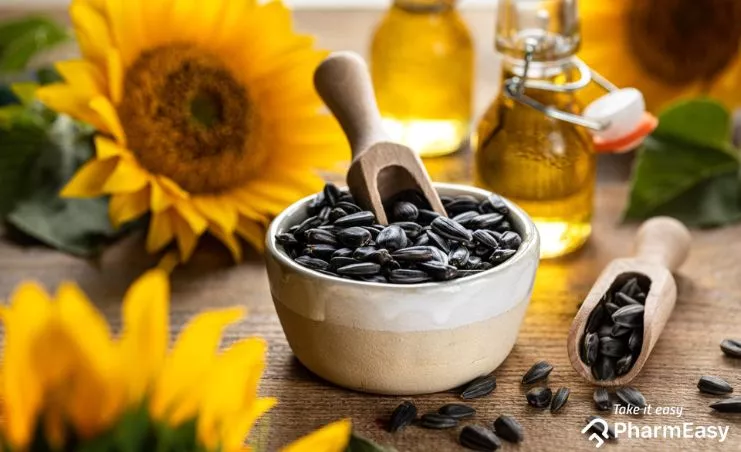
However, if you’re mindful of your calorie intake, it’s important to know the calories in sunflower seeds while appreciating their overall nutritional benefits.
There are two main types of sunflower seeds:
Large sunflower heads can yield around 2,000 seeds. These edible seeds can be enjoyed as a snack or added to:
You can even have sunflower butter made using these seeds.
Also Read: 14 Amazing Health Benefits of Pumpkin Seeds!

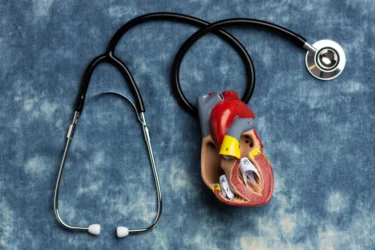
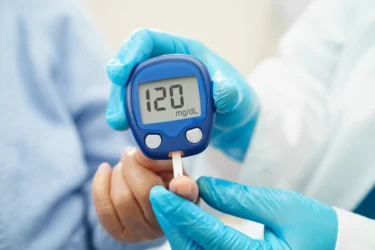
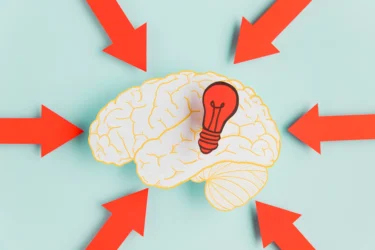

Also Read: Halim Seeds: Uses, Benefits, Side Effects and More By Dr. Rajeev Singh
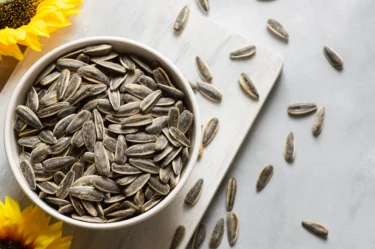


During pregnancy, the benefits of eating sunflower seeds are many as they are loaded with Vitamin E, folic acid, which are known to be extremely beneficial for prenatal health.

People suffering from chronic inflammation can find relief by consuming sunflower seeds either as part of a trail mix or by adding them to their breakfast cereal or even by sprinkling some on their soup or salad. The health benefits of sunflower seeds include anti-inflammatory properties due to the presence of flavonoids, Vitamin E and other compounds.
Recently, I came across a study2 that states sunflower seeds might promote healthy bones. Sunflower seeds are said to have a rich source of minerals such as Magnesium, Phosphorus and Calcium that might help maintain healthy bones.
Dr. Siddharth Gupta, B.A.M.S, M.D (Ayu)
From my knowledge, Sunflower seeds might be your ally in treating asthma. Tocopherols found in sunflower seeds have anti-inflammatory properties that may play a significant role in conditions involving chronic inflammation, such as bronchial asthma, osteoarthritis, rheumatoid arthritis and asthma9.
Dr. Smita Barode, B.A.M.S, M.S.
Sunflower seeds should not be consumed more than 1 small cup (around 30 grams) per day. Consult your doctor before consuming these seeds if you are suffering from a chronic or acute illness.
Sunflower seeds are a proven source of minerals, such as magnesium. I recently read in an article that Sunflower seeds may help maintain muscle tone, strengthen them and avoid muscle cramps because they are a source of magnesium9.
Dr. Rajeev Singh, BAMS
Also Read: 15 Amazing Health Benefits of Papaya Seeds That You Should Know!
Sunflower oil has more vitamin E than sunflower seeds, whereas sunflower seeds contain vitamin B6, iron, phosphorus and pantothenic acid. Additionally, sunflower seeds are more expensive than sunflower oil. Thus, both have their pros and cons.
Adding sunflower seeds to one’s diet is really easy, like any other seed. You can sprinkle on top of your salad, add to oatmeal or muesli or granola, combine into trail mix, add as one of the ingredients of energy balls for weight loss, add to burgers, stir fry vegetables or even make sunflower butter similar to peanut butter.
You can store sunflower seeds in an airtight container when kept in an environment that is cool and dry, such as a refrigerator and freezer, for up to 12 months.
Yes, in moderation, dogs can eat plain, unsalted sunflower seeds as a healthy and nutritious snack. However, it’s crucial to remove the shells to prevent digestive issues, and consulting with a vet is recommended for individual dietary considerations.
Yes, sunflower seeds may be beneficial during pregnancy as they are a rich source of essential nutrients like folate, vitamin E, and omega-3 fatty acids, which support fetal development and maternal health. However, it’s important to consult with a healthcare professional for personalised advice based on individual dietary needs.
Yes, sunflower seeds may aid in weight loss as they are a nutrient-dense snack that provides satiety with healthy fats, protein, and fibre. However, it’s important to consult with a healthcare professional for personalised advice based on individual dietary needs.
In traditional Chinese medicine, sunflower seeds are often considered ‘heaty,’ meaning they may contribute to warmth in the body. However, individual responses vary, so it’s advisable to consult with a healthcare professional or nutritionist for personalised advice based on your health condition and dietary needs regarding sunflower seeds or any specific foods.
Sunflower seeds may be beneficial for individuals with hypothyroidism due to their selenium content, which supports thyroid function. However, it’s crucial to consult with a healthcare professional for personalised dietary advice and to ensure that it align with an individual’s specific thyroid condition and overall health.
To eat sunflower seeds, crack open the shell with your teeth, extract the seed, and discard the shell. Enjoy them raw, roasted, or seasoned, and consider adding them to salads, yoghurt, or as a wholesome snack for a satisfying crunch.
While sunflower seeds are nutritious, their calorie density may contribute to weight gain if consumed excessively. For personalised advice on incorporating them into a balanced diet, it’s recommended to consult with a healthcare professional or a registered dietitian.
Sunflower seeds, with their high content of unsaturated fats and phytosterols, may contribute to lowering cholesterol levels. For personalised guidance on incorporating them into a heart-healthy diet, consulting with a healthcare professional is advisable.
No, sunflower seeds are not a significant source of vitamin D. While they contain various nutrients, vitamin D is typically obtained from sunlight exposure, fortified foods, or other dietary sources.
Yes, sunflower seeds contain a small amount of omega-3 fatty acids, but they are not a primary source. Including a variety of foods rich in omega-3s, such as fatty fish and flaxseeds, is advisable for optimal intake.
While sunflower seeds offer nutritional benefits, there’s limited evidence supporting a direct impact on testosterone levels. For personalised advice on hormonal health, consulting with a healthcare professional is recommended.
Certainly, sunflower seeds are keto-friendly due to their low net carb content and high healthy fat content. For personalised dietary recommendations, especially in the context of a ketogenic diet, consulting with a healthcare professional or nutritionist is advisable.
Yes, sunflower seeds can be consumed raw and offer a healthy snack option. However, it’s advisable to consult with a healthcare professional to ensure that raw sunflower seeds align with your individual dietary needs and health conditions.
Sunflower seeds are not typically linked to kidney stone formation and can be part of a healthy diet. However, individuals with a history of kidney stones should consult a healthcare professional for personalised advice on their dietary choices and overall kidney health.
There is no direct evidence linking sunflower seeds to acne. However, individual reactions may vary, and consulting a dermatologist or healthcare professional for personalised advice is recommended, especially for those with specific skin concerns.
Yes, many bird species can safely consume sunflower seeds as they are a rich source of energy, healthy fats, and nutrients. Offering these seeds can attract a variety of birds to your garden or feeding area, contributing to their well-being.
Sunflower seeds benefits for male health include improved heart function, better hormone balance, enhanced muscle strength, and support for fertility. They are packed with protein, zinc, selenium, magnesium, and vitamin E, that are essential for men’s overall wellness.
Disclaimer: The information provided here is for educational/awareness purposes only and is not intended to be a substitute for medical treatment by a healthcare professional and should not be relied upon to diagnose or treat any medical condition. The reader should consult a registered medical practitioner to determine the appropriateness of the information and before consuming any medication. PharmEasy does not provide any guarantee or warranty (express or implied) regarding the accuracy, adequacy, completeness, legality, reliability or usefulness of the information; and disclaims any liability arising thereof.
Comments

Leave your comment...

View all comments(9)
You may also like
ThankYou Precious Dr Prachi Garg
You Are Very helpful
God Bless You
A WONDERFUL SITE
Thank you, glad you liked it.
Very useful information. Thank you.
You are most welcome. Glad you found it useful.
Please advise me How to eat this seed, because I am a diabetic and bp patient
Can sunflower seeds revive low brain memory?
Thanks for the information.
Thank you so much for your information trying to get my cholesterol and triglycerides under control.